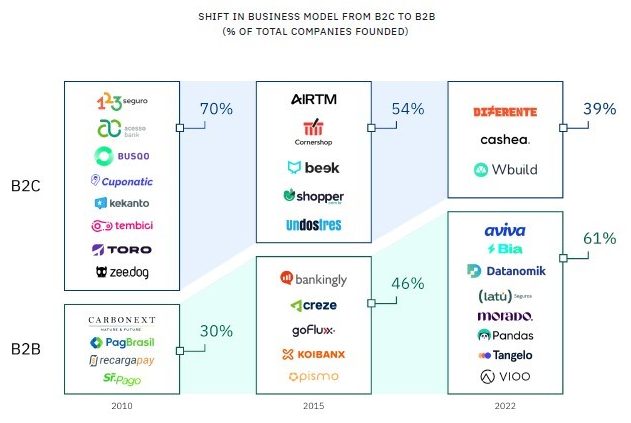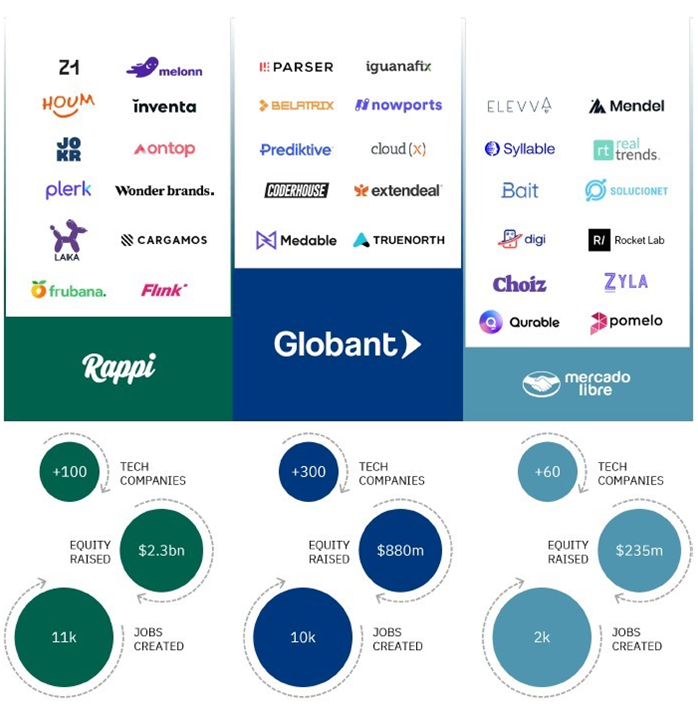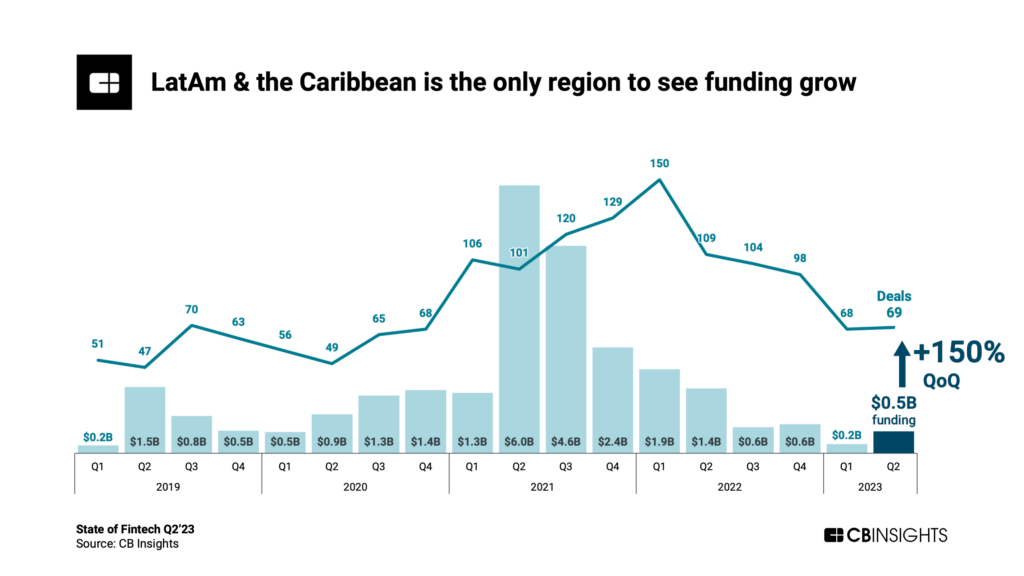
Por Jose Pulido
August 3, 2023
The Latin American fintech ecosystem has experienced significant changes in the last twelve years. According to GP Bullhound’s study “The Evolution of the Latin American Technology Ecosystem and Investments (2010-2022)”, after a record surge in investments and funding in 2021, these indicators decreased in 2022 due to macroeconomic events that shook the region. Startups were forced to adjust their strategies and focus on profitability rather than growth at all costs.
“…startups had to adjust their business strategies to what investors were seeking, that is, profitability rather than growth at all costs, in the face of macroeconomic events that shook the economy,” explains the study.
Despite this challenging landscape, the technology ecosystem in Latin America continues to evolve. An increasing focus on early-stage B2B SAAS models indicates a trend towards software solutions rather than B2C models.

Shift in business from B2C to B2B.(Source: GP Bulhound)
Pioneering technology companies such as Globant and Mercado Libre stand out within the ecosystem, having evolved into startup factories, instilling confidence in subsequent entrepreneurs and investors.

Investments by Globalt, Rappi and Mercado Libre. (Source: GP Bulhound)
The participation of the middle class has been crucial for the growth of the technology startup ecosystem in Latin America:
“The use of technology by the middle classes has become widespread in the region, and the digital transformation of large companies has accelerated during the pandemic; cross-border investment funds saw it as a unique opportunity to acquire stakes in fundraising companies. USD $28 billion has been invested in the region in 2020-2022, of which 73% in E-commerce and the Fintech sector.”
The study also reveals four waves of evolution in the Latin American technology ecosystem, marked by socio-political events in the region. These waves have contributed to the emergence of over 50 unicorns in the area and an investment of USD $35 billion.

Evolution of unicorns in LatAm. (Source: GP Bulhound)
On the other hand, according to data from CB Insights and S&P Global Market Intelligence, global fintech funding decreased in the second quarter of 2023, reaching its lowest level since 2017. However, Latin America and the Caribbean have been a positive exception, attracting USD $500 million in investments, 150% more than in the previous quarter.
Mega-rounds and funding in sectors like payments have been the most affected, but fintech companies based on artificial intelligence (AI) have received significant investments.

State of Fintech Q2 2023. (Source: BC Insights)
The Latin American technology industry has also seen an increase in mergers and acquisitions in recent years. However, more activity is expected to drive sustained growth in the total funding amount.
The startup ecosystem is going through a problematic crusade, investments have decreased in the last year and a half, and investors seem to have matured and are far from thinking about growing companies; they think about their profitability, which leads us, like it or not, to the implementation of technology or the creation of technology startups and, as money calls for more money, despite the uphill, the fintech sector seems the most appropriate to invest in.

Por Israel Pantaleón
January 20, 2026

Por Israel Pantaleón
December 17, 2025